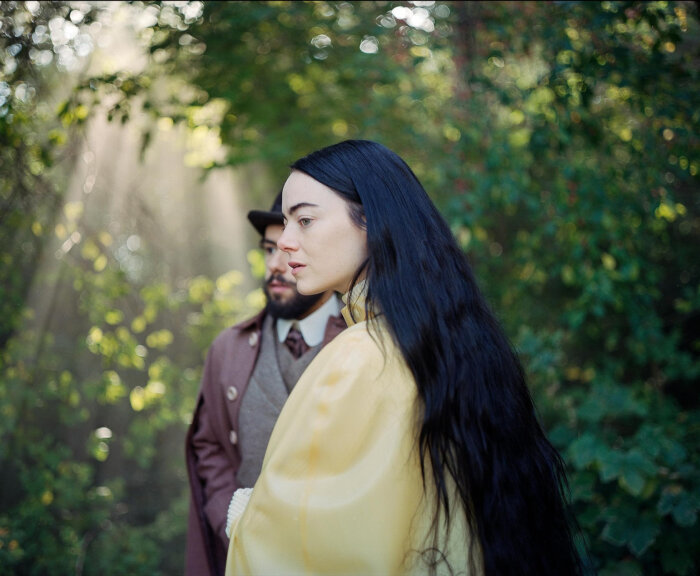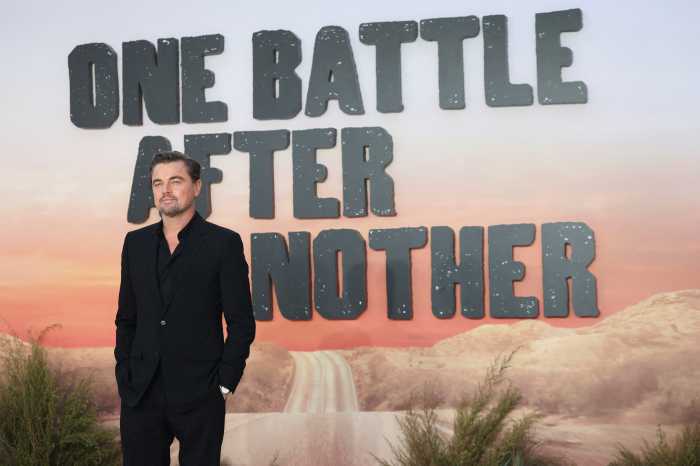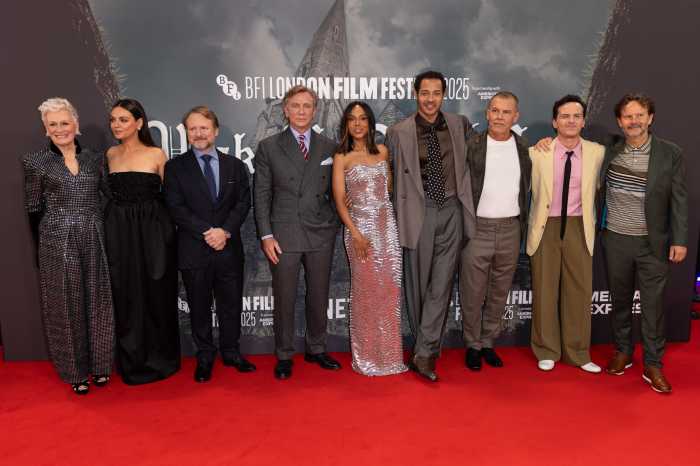By Maria Estévez, Metro World News
Yorgos Lanthimos and Emma Stone, who first collaborated on ‘The Favourite’ (2018), are teaming up on another project called ‘Poor Things.’
The film is loaded with magic and science fiction and tells the story of Bella Baxter (Stone), a young pregnant woman who throws herself off a bridge, and her body is recovered by a mad scientist (Willem Dafoe) who experiments on her, keeping her alive by transplanting her baby’s brain.
‘Poor Things‘ is a beautiful, comic, and strange reinvention of the Frankenstein tale that gives way to the awakening of primal pleasures and how to enjoy them. Lanthimos received the blessing of the late writer Alasdair Gray to adapt his 1992 novel and began working on the script with screenwriter Tony McNamara while shooting ‘The Favourite.’
Lanthimos turns Emma Stone into a strange and wild child, or as the director described her in the interview, “a mind that can be free without shame or prejudice. Simply experiencing the world on her own terms.”

Without the presence of Emma Stone at the 80th edition of the Venice Film Biennale, due to the actors’ strike in Hollywood, Lanthimos acknowledged feeling uncomfortable receiving all the promotional limelight in front of the press.
“She should be here,” he said. “She should explain why she makes certain choices when it comes to playing the character.”
The Greek director, who surprised the world with ‘Dogtooth,’ started the awards race with ‘The Favourite’ in 2018. With the film, he won the Grand Jury Prize, in addition to the Volpi Cup for Best Actress for Olivia Colman, an award he would later repeat at the Oscars, where the film earned 10 nominations.
It was also the beginning of reinvention for Stone after winning the Oscar in 2016 for ‘La La Land.’ Perhaps that’s why it seemed logical that it was at the Lido where they will present ‘Poor Things.’ Both want this to be the start of a new awards season.
“My film talks about freedom in the way of thinking and seeing the world, about the position of women in society, about relationships between men and women,” the filmmaker stated.
Lanthimos read the novel in 2011 and has wanted to adapt it ever since. Stone’s involvement also comes from afar, since he told her about the project at the end of the shooting of ‘The Favourite.’ And since then, she has been interested.
“Emma has been informed of the whole process, and I think that has helped her because somehow she has had the character in mind during all this time,” revealed the director, who again pointed out his strangeness at having to speak on behalf of the actress.
Unlike the novel, the film’s narrative focuses solely on Bella Baxter’s point of view, “that mind that can start from scratch, completely free, without shame or prejudice,” Lanthimos said.
The plot starts in London, in the house and workshop of the surgeon who brings her back to life, and where the first stage of discoveries takes place until Bella’s desire for emancipation arises, and she embarks on a journey with a libertine lawyer played by a hilarious Mark Ruffalo.
Lanthimos spoke about the actress and the sex scenes:
“It was very important for me not to make a film that was prudish because it would be like completely betraying the main character. We had to be sure that Emma shouldn’t be ashamed of her body, of her nudity, or of participating in those scenes. And she understood that right away,” he added.
Sex plays an important role in ‘Poor Things’ and the education of young Bella, who learns her likes and dislikes through trial and error.
“It’s strange, isn’t it, why is there no sex in the films?” Lanthimos asked. “It’s a shame Emma can’t be here with us to talk more about it because it’s strange that it’s only me explaining it. Sex is an intrinsic part of the novel: its freedom includes sexuality.”
There was also an intimacy coordinator on the set.
“At first, this profession seemed threatening to most filmmakers, but it’s like anything else; if you find a good professional, you realize that you really need one,” the director confessed.
Lanthimos displays a visual exuberance in set construction that turns Lisbon, Paris, or London into dystopian versions of themselves.
“The first thing I do is see what the story asks of me. But it’s true that in cinematic terms, I’m interested in developing a style and taking it further in each film. It was about doing something different; a world suitable for her could not be the world as we know it,” the Greek shared.
Black humor, a touch of perversion, and absurdity are also elements of filmography that grow with each film. In ‘Poor Things,’ Lanthimos offers the best version of himself to the delight of the audience.
“I nourish myself from what I observe, read, and imagine; there is something absurd in all human behavior, and in sexuality too, it seems natural to me,” he concluded.



























